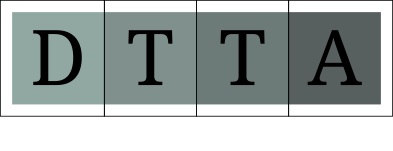View Spanish Version Descargar en español
We have listed a few of the most common questions and answers about an “estate plan” to help you decide what options are best for you.
What is a Will?
A “Will” is a legal document that lets you decide who inherits your property when you die. If you have young children, a Will can list who would care for your children (a “Guardian”) if something happens to you. With a Will, you can also pick who will be in charge of collecting and distributing your property (your “Executor”). A Will does not require you to change title to
any assets while you are alive. A Will only takes effect after you die. Your Will must first be filed by the Executor with the “probate” court after your death, and your Executor must be appointed by the court. A judge will then supervise how your debts and taxes are paid, and how and to whom your property is distributed.
What if I die without a Will?
Things you own (your assets) in your name alone will be divided up according to state law and distributed to your spouse, domestic partner, children or other relatives. The court will appoint someone as an “Administrator” (usually a relative) to collect and distribute your assets. An Administrator performs the same job as an Executor.
What is a Revocable Trust?
A “Trust” requires a “Settlor” (you) to transfer money and your assets into the name or title of a Trust that is for your benefit or for another person. An attorney can prepare a “revocable Trust” if a Trust is the right tool for you. You usually are named as the first “Trustee” and control your assets during your lifetime. Unlike a Will (which takes effect after your death), a revocable Trust is usually effective once created. You can change a revocable Trust during your lifetime. A “Successor Trustee” is someone who manages your assets when you can no longer handle your affairs, or upon your death. A Trust is not usually supervised by a court, and is considered more confidential. A revocable Trust is usually used to manage your finances during your life, distribute your assets on your death, and to avoid a probate.
What is a Power of Attorney?
A “Power of Attorney for Financial Management” names someone to help with your finances if you are unable to do so. Only certain assets require a power of attorney (such as insurance agreements, public benefits, automobiles, or assets that are not in your Trust). A power of attorney is not supervised by the court, but is an agreement between you and the
person you have selected as your agent to wisely manage your funds. You can change a power of attorney during your lifetime. The authority you give to your agent under a power of attorney ends on your death.
What is an Advance Health Care Directive?
An “Advance Health Care Directive” allows you to decide how you would like your end-of-life health care decisions to be made and by whom. This directive tells doctors your preferences, including religious beliefs, and helps direct medical treatment when you can’t make your own decisions. An Advance Health Care Directive is not supervised by the court.
What is a Conservatorship of the Person or Estate?
If you are unable to make medical or financial decisions, and have not prepared any of the documents listed above, it may be necessary for someone to file a petition with the court to be appointed as your “Conservator” to handle your personal needs (where you live or to make medical decisions for you) or to handle your estate (pay your bills, insurance, mortgage, file your tax returns), or for both your “person” and “estate”. The court supervises conservatorships once they have been established, and a Conservator must file regular reports and accounts with the court.
What is a special needs Trust?
A special needs trust is a Trust created for a beneficiary who has a disability and who may be receiving public benefits. These types of Trusts are usually created through your own estate plan to provide for a disabled beneficiary on your death, or may be established through the courts as part of a personal injury settlement, probate distribution or conservatorship.
Do I need to update my Will, Trust, Advance Health Care Directive, or Power of Attorney every year?
No, but your existing documents should be reviewed by an attorney if there are major changes in your life, such as the birth or death of a child, death of your spouse, divorce, marriage or remarriage, sale of your trust property, or winning the lottery! Changes in state or federal tax laws may also require changes to your estate plan. If you move to a new state, or move to California with an estate plan prepared in another state, your estate plan may require modification or revision.

